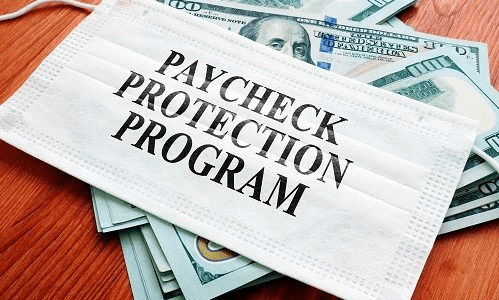
9.14.20 – CI – Zachary Comeau
If your business took a loan from the Small Business Administration’s Paycheck Protection Program, there are some tax implications you’ll want to know.
If your business took a small business loan from the Small Business Administration’s Paycheck Protection Program, there are some tax questions you may be running into, particularly if you pay quarterly estimated taxes.
As Tuesday’s deadline to pay estimated taxes for the third quarter approaches, some businesses that took a PPP loan are discovering that business expenses covered by loan proceeds aren’t deductible. However, the IRS says the loan forgiveness itself is tax-free.
The PPP program offered many businesses a lifeline in the form of a forgivable loan provided that 60% of the loan goes toward a company’s payroll expenses. This kept employees on the payroll and helped limit mass layoffs as revenues took a nosedive in March and April.
According to CNBC some Congressional leaders have proposed legislation to make those costs deductible since being unable to deduct the costs would make a business’ income appear higher, thus raising their tax bill.
Business owners who haven’t yet applied for forgiveness are facing a conundrum as the year winds down.
Do they count the expenses covered by the PPP loan and seek deductions for them when they hash out their third-quarter taxes? Or do they allow those items to be covered by the loan but avoid deducting the costs — which could result in a higher estimated tax payment for the third quarter?
“The problem is that they don’t know if they’re getting forgiveness and there’s a good chance that someone who’s applying for forgiveness won’t know by the end of the year,” said Ed Zollars, CPA at Thomas, Zollars & Lynch in Phoenix.
“Currently I would tell clients that if you want to be safe and we’re talking about estimates, then treat the expenses as non-deductible so that you’ve overpaid,” he said.
CNBC reports that many businesses, tax professionals and even some banks are waiting to apply for forgiveness until Congress addresses that issue.
Businesses are essentially faced with two choices: deduct the business expenses and possibly pay less in estimated taxes for now, or don’t deduct the costs and possibly pay more in taxes for the quarter.
With 2020 coming to a close, now is a good time to have these conversations with your accountant about your options, since this could have big implications for your bottom line in 2021.
